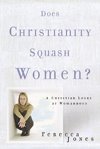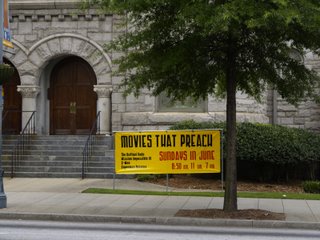The “Boundaries” of the Christian Faith (III)
 Defining the Christian Faith
Defining the Christian FaithThe late John Leith reminds us that “Within the Presbyterian tradition the question has been debated from the time John Calvin forced Sebastianus Castellio to give up teaching in Geneva because of the views on the canon of scripture.”[1] He continues his line of thinking with these words: “For Calvin there were boundaries and the canon of scripture set one of them.”[2]
Neither Calvin’s nor our time is unique in terms of having clearly to define what it is to be a Christian, or in Leith’s tradition, what is meant and means to be a Presbyterian. In terms of the history of Christianity, John Piper reminds us that contention has been one of the hallmarks of the Christian faith since day one.[3] The Church has had to contend for the truth in order to differentiate God’s truth from error and heresy.
Placing the controversy once again within the realm of what it means to be Presbyterian, Leith asks, “What does it mean to accept the substance of doctrine taught in the Westminster Confession of Faith?”[4] This is a highly pertinent question in light of the various controversies swirling about today. Not too terribly long along there was an attempt on the Internet to get Presbyterians to be a kinder and gentler type of denomination. A document appeared entitled “Presbyterians and Presbyterians Together.” The document kept using the word “we,” but the problem was that we never got to find out who the “we” were/are, except that a number of people became signatories. No author(s) placed his or her name on the original document, however. As I read it, I could not help but be reminded of that great one-liner in Butch Cassidy and the Sundance Kid: “Who are those guys?”
In the course of the document, no less that thirteen areas of disagreement were noted where tolerance and mutual respect were hoped for. This is a similar approach taken by those who hold to what has come to be called the Federal Vision. It’s a kind of Rodney King theology: Why can’t we just all get along? Between people saying, “You just don’t understand me” and “We need to be more tolerant,” you get the impression that someone has an agenda but that they are playing their cards close to the chest.
So what was Leith’s solution to the dilemma in which the Presbyterian Church (U.S.A.) found itself regarding the “boundaries” of the faith? After pointing out that within the Presbyterian tradition the controversy concerning subscription was most intense in the 17th, 18th, and 19th centuries, he proceeds to give what he considers to have been the best answer given to the question of “boundaries” in the Presbyterian Church. The author of that answer was the old-Princeton professor A.A. Hodge who said that the acceptance of the Westminster Standards meant that “one is in theology, (1) a Catholic, (2) a Protestant, (3) a Reformed theologian.”[5] Of course, this answer has to be fleshed out and there are a couple of ways to do that.
First, the Presbyterian professor/pastor can make a simple, good-faith statement that he believes all that is contained within the Standards to be an accurate summary of what Scripture teaches. In my denomination, certain “exceptions” are allowable as long as they do not strike at the heart of the gospel or the Reformed tradition.
Second, there is the way in which a person claims to hold to the Standards, but in the course of the conversation it becomes apparent that he truly doesn’t. For example, if a member of a conservative Presbyterian church does not believe that there was such a thing as the Covenant of Works, he should simply look for another denomination where refusing to accept that doctrine would not be a problem.
Or, if the person believes the several doctrines taught by Norman Shepherd, the (so-called) New Perspective on Paul, or the Federal Vision, he is going to have difficulty agreeing with the doctrine of justification by faith espoused by the Westminster Standards. It would seem that rather than trying to stay and quibble about perceived nuances, he might consider leaving and going to a denomination that would be more open to that kind of thing. If I became convinced that infant baptism, for example, was incorrect I have the duty—I gave my word to do so—to inform my fellow-Elders of my change. Moreover, I should leave the Presbyterian and Reformed churches since their positions on the doctrine are quite clear.
Foundational Doctrines
Leith includes an interesting sub-section in his chapter on the boundaries of the Christian faith entitled “Foundational Doctrines.” His words written in 1997 are still pertinent almost a decade later: “The doctrines that are at issue today and that are at great risk in our secular society are quite clearly not peripheral doctrines, but those that are essential for Christian faith.”[6] That is precisely the case. Christian doctrine is under attack today, which, in and of itself, is nothing new. It is pertinent, however, that we continue to heed Leith’s words because the modern Church is embroiled in a number of doctrinal controversies that involve the issues of the ordination of women to the office of Elder/Pastor, baptismal regeneration, the efficacy of the biblical doctrine of justification by faith both for now and for the future final judgment, the inerrancy of Scripture, and precisely how the Church should “engage” the culture without losing her principles.
Leith continues and states, “No Christian community has ever thrived for long without a clear affirmation of the doctrines that are precisely at risk in our society, in universities, and even in seminaries.”[7] And yet, amidst the cacophony in the world, there is a rising cacophony in the Church. Some pastors opening ridicule, malign, and scoff at doctrine, giving their congregations the impression that doctrine doesn’t matter at all. At the same time, there are others who define doctrine sloppily and loosely so that, in the final analysis, doctrine mattes little. As often as not, pastors, church leaders, and church members take a more or less secular view of doctrine, relativizing it, watering it down, or dumbing it down to the point that it means nothing.
Leith proceeds to mention six “essential” doctrines of the Christian faith, which, disappointingly, are far too general. They resemble the historical Five Fundamentals of the Faith, which were fine as far as they went, they simply did not go far enough. For example, the FF said nothing about justification by faith—a central biblical doctrine—and merely outlined biblical eschatology in very broad strokes. It was this imprecision that led to the aberration of the type of Dispensationalism taught at the front end of the 20th century.
He does, however, make the valid point that “No Christian church in history has endured for long without the clear affirmation of these particular doctrines.”[8] I would broaden Leith’s list substantially and use the Three Forms of Unity (Heidelberg Catechism, Belgic Confession, Canons of Dort) and/or the Westminster Standards. This is not to say that I cannot converse with those who differ in the Church. There is, however, a great deal to be said about identifying myself as a Presbyterian Christian. By the use of that adjective I am telling you where I am coming from theologically. We don’t have to agree, but you have a good idea of what I’m about. From that statement, I can follow Leith’s advice and give you a clear affirmation of what I believe.
Surprisingly, Leith makes a very similar point from his PCUSA position. Concerning their doctrinal standards he writes, “In the doctrinal standards of the Presbyterian Church (U.S.A.) no pluralism or diversity exists as to the faith by which the church lives and that distinguishes it from the secular culture.”[9] Really? That’s an interesting point and I’m certain that the leaders of the PCUSA would be enthralled to know this! That’s a pretty strong statement coming from a man in the PCUSA! But Leith is not finished! He continues, ‘There is a considerable amount of evidence that the decline in mainline churches is related to the silence of mainline churches, their seminaries, and their preachers precisely on these doctrines that are at risk.”[10]
Ironically, in our day and age a disproportionately high number of evangelical and Reformed/Presbyterian churches are attempting to get us to believe that doctrine doesn’t matter. Leith is convinced that it is precisely the silence of the Church on doctrine that has contributed to the problem and not the solution. It is crucial and necessary that God’s truth be proclaimed and taught in such a manner that it not merely touches the heads of God’s people, but that it must also be directed to their hearts and conduct as well. In 1 Timothy 3:14-16, Paul gives a proper biblical balance between Christian conduct and Christian confession.
It really isn’t difficult to ignore Leith’s warnings; in fact I’m convinced that many have and will continue to do so. For the longest time doctrine has fallen into disrepute with too many pastors and church leaders who have rather been enamored of the culture of self(-absorption). Or, the leaders have been so “numbers driven” that they feared giving the attendees anything remotely doctrinal for fear of losing them, when in point of fact fearing to tell them what Scripture says means that you have, de facto, already lost them.
Fear of the “H” Word
Once you start down the path of accepting everything and everyone—or virtually everything and everyone—you are bound by the going definitions of toleration. This concept tends to a laissez-faire, live-and-let-live mentality that is more typical of Rodney King than it is true, biblical thinking. A number of complex reasons come into play with the current slothfulness and sloppiness vis-à-vis evangelical doctrine. If some within the evangelical camp are moving away from the traditional doctrine of inerrancy, what’s the big deal? Why does it matter that I confess that God is sovereign and in control. Why can’t Pinnock, Olson, Grenz, and others be right about Open Theism? Does it matter whether or not grace is infused at baptism? Who really cares about the relationship between justification and sanctification? Does it matter what the Bible says about homosexuality? Why should I be concerned about what actually took place on the cross?
These are all questions that are being bandied about today. Clearly, they have been discussed before, which means that they have a history and a particularly Christian history for those interested and concerned enough to find out why those battles regarding orthodoxy were even fought. John Macquarrie wrote the following in 1966: “[T]he identification and rejection of heresies were necessary and useful during the first five centuries in the church’s experience…. There was always the danger of distortion or the merging of Christianity into the welter of pagan cults.”[11]
Okay, so the Church had those fights and determined what was orthodox and clearly distinguished it from what was heterodox. So what? Well, the “big deal” is described by Leith this way: “but the issues that justified the use of the term ‘heresy’ were settled in the first five centuries. It is significant that at the very moment Macquarrie was making these statements, the doctrines that were beginning to be questioned in the life of the church were precisely those that the Christian community had to deal with in the first five centuries. Heresies that the church emphatically rejected in the first five centuries now began to reappear in the writings of theologians.”[12]
Thomas Oden puts his finger on the pulse of our modern dilemma when he says, “After centuries of struggle against recurrent heresies, Christians have found a quick way of overcoming heresy: they have banished the concept altogether. With absolute relativism holding sway, there is not only no concept of heresy, but no way even to raise the question of where the boundaries of legitimate Christian belief lie. This is like trying to have a baseball game with no rules, no umpire, and no connection with historic baseball…”[13]
The modern Church could not have it more incorrect with their desire to level the playing field so that irrespective of what doctrines you espouse you are a Christian in good standing. There is still right and wrong in Scripture—thankfully—and we must not shy away from controversy about biblical truth. John Piper puts it this way: “There is a mistaken notion about the relationship between the health of the church and the presence of controversy. For example, some say that spiritual awakening and power and growth will not come to the church of Christ until church leaders lay aside doctrinal differences and come together in prayer…. But there is a historical and biblical error in the assumption that the church will not grow and prosper in times of controversy.”[14] In fact, Piper argues that the New Testament itself issues a “summons” to controversy (cf. Jude 3; Phil. 1:7; 2 Tim. 4:2-4; Acts 20:30; 2 Pet. 2:1; 1 Cor. 11:19).[15]
Leith’s contention—no pun intended—is that even though we may be witnessing a large number of people attending churches that cater to their needs—real and perceived—the real growth is occurring in another sector of the Church. I’ll close this installment with these words from Leith: “It is significant today that so many of the churches in American Christianity that are growing and showing signs of vitality are those that proclaim, clearly and without equivocation, the traditional Christian convictions about God and about God’s work in the world.”[16]
[1] John Leith, Crisis in the Church, (Louisville: Westminster John Knox Press, 1997), p. 26.
[2] Ibid.
[3] John Piper, Contending for Our All, (Wheaton: Crossway Books, 2006).
[4] Leith, CC, 26.
[5] Ibid.
[6] Ibid., 29.
[7] Ibid.
[8] Ibid., 30.
[9] Ibid.
[10] Ibid. Italics mine.
[11] John Macquarrie, “Some Thoughts on Heresy,” Christianity and Crisis 26:22 (December 26, 1966): 291-294.
[12] Leith, CC, 32-33. Italics mine.
[13] Thomas Oden, “Can We Talk about Heresy?” Christian Century (April 12, 1995): 390. Emphasis mine.
[14] Piper, Contending, 22.
[15] Ibid., 34ff.
[16] Leith, CC, 37.







